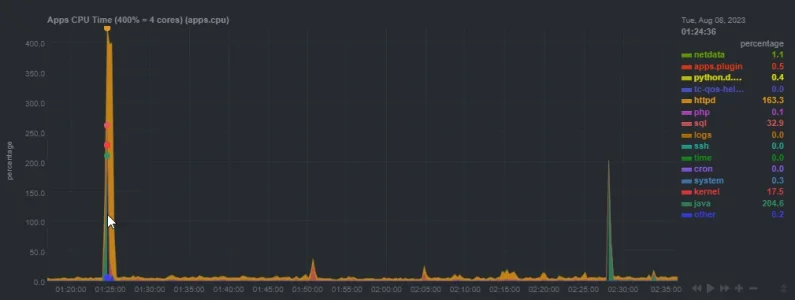I was hoping someone could give me a quick answer.
Our hosts (Nimbus, who are excellent) are looking to move us to a new server but it'd have less memory.
I'm a little confused on how this would impact ES.
Our live stats show:
KiB Mem : 32652304 total, 5929716 free, 9955640 used, 16766948 buff/cache
I thought a lot of this buffer/cache was ES but our hosts said that ES is using only 6% of the memory (so around 2GB):
PID USER %MEM COMMAND
22671 elastic+ 6.3
In the XF admin page I see:
Documents 7,749,372 (5.6 GB)
Index updates 1,882,146
Searches 4,210,905 (7 milliseconds average)
Allocated memory 7.3 MB
Based on the above, would 24GB of RAM on a new server be sufficient? What memory is ES actually using here?
Our hosts (Nimbus, who are excellent) are looking to move us to a new server but it'd have less memory.
I'm a little confused on how this would impact ES.
Our live stats show:
KiB Mem : 32652304 total, 5929716 free, 9955640 used, 16766948 buff/cache
I thought a lot of this buffer/cache was ES but our hosts said that ES is using only 6% of the memory (so around 2GB):
PID USER %MEM COMMAND
22671 elastic+ 6.3
In the XF admin page I see:
Documents 7,749,372 (5.6 GB)
Index updates 1,882,146
Searches 4,210,905 (7 milliseconds average)
Allocated memory 7.3 MB
Based on the above, would 24GB of RAM on a new server be sufficient? What memory is ES actually using here?

